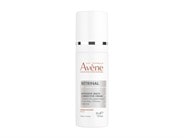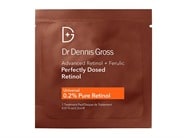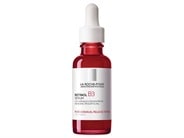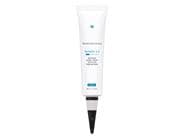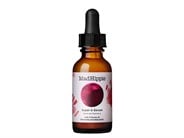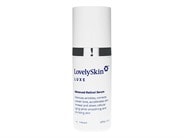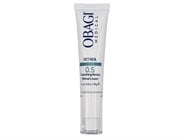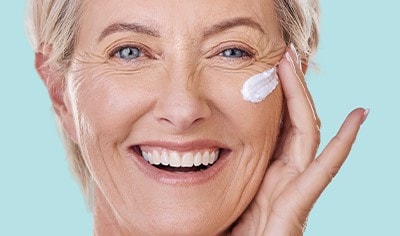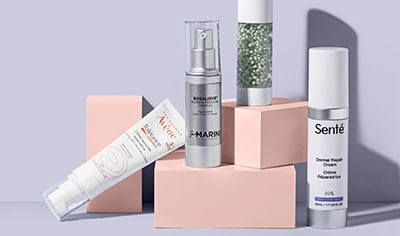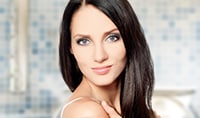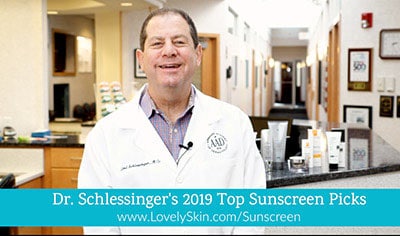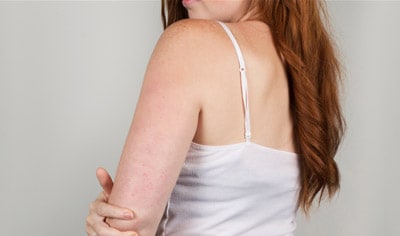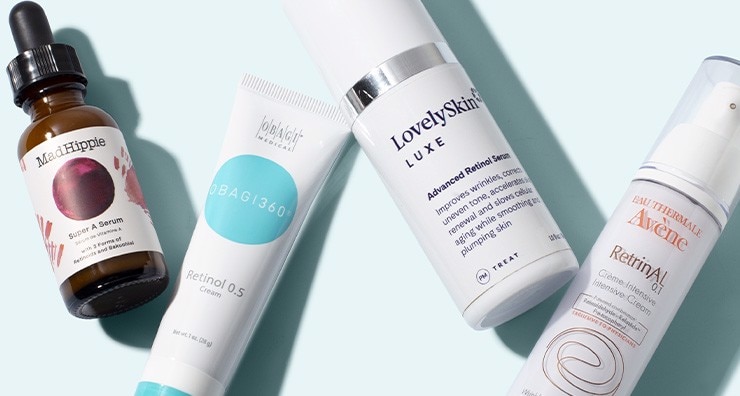
Retinol is one of the most talked about ingredients in skin care, and because it's known for its anti-aging properties, you might be wondering at what age to start using retinol. Is your 20s too early? If you’re pondering using retinol for the first time, start by learning the answers to these questions:
- When should you start using retinol?
- How should I use retinol to start?
- What should I know about using retinol for the first time?
- What are the best retinol creams for 20s?
When to start using retinol
“Retinol is a derivative of vitamin A,” says board-certified dermatologist and LovelySkin CEO, Dr. Joel Schlessinger. “It is one of the top anti-aging ingredients that I recommend to my patients. It spurs cells to regenerate more quickly, resulting in skin that looks smoother and more youthful.”
As far as what age you should start using retinol, is it too early to start using retinol in your 20s? As a matter of fact, it’s not. The American Academy of Dermatology recommends starting an anti-aging treatment like retinol in your 20s. “Because retinol is a preventative measure, you don’t have to wait until you’re actually noticing signs of aging—like fine lines or crow’s feet—to start using it,” Dr. Schlessinger says.
How to start using retinol
Because retinol can cause minor skin irritation, such as redness and flaking, we recommend starting slowly with a once-a-week application and working up to two or three times a week. Over-the-counter retinol products typically range in concentration from 0.1% to 2%.
“For 20-somethings, I typically recommend starting with a lower concentration—0.1% if you have sensitive skin or 0.25% if you don’t—to see how your skin reacts,” Dr. Schlessinger says. The time of day you apply retinol also matters. “Sunlight actually decreases the efficacy of retinol, so for that reason, I recommend using retinol products at night instead of in the morning.”
Tips for retinol beginners
If you plan to start using retinol in your 20s, there are a few things you should know when using it for the first time. First, because retinol makes your skin more sun-sensitive, it’s crucial that you wear sunscreen daily. You may want to experiment with different formulas in order to find a sunscreen you love, so you’ll be more likely to wear it religiously.
Also, if you regularly wax your eyebrows, chin or upper lip, keep in mind that retinol and facial waxing are not a good mix. “Because retinol thins the outermost protective layer of skin, waxing could end up actually damaging your skin,” Dr. Schlessinger says. “If you’re planning to get any kind of facial wax, I would recommend stopping all use of retinol at least two weeks before your appointment, to be safe.”
The 7 best retinols for your 20s
Are you ready to add a retinol to your skin care routine? When it comes to the best retinol for your 20s, there are lots of choices out there. It may take some experimenting to find the right formula for you, but the skin benefits you’ll experience will be worth it! Here are a few recommendations to consider, starting with the lowest concentration of retinol and working up to higher percentages as the list goes on.
Avene Retrinal 0.1 Intensive Multi-Corrective Cream
This is a great starter anti-aging cream for 20-somethings with sensitive skin, featuring 0.1% retinal, a derivative of vitamin A that tends to be a gentler retinol alternative. It also contains 5% thermal spring water to help curb irritation and evening primrose oil to moisturize skin for a smooth, soft finish.
Dr. Dennis Gross Advanced Retinol + Ferulic Perfectly Dosed Retinol Treatment Pads
This retinol treatment takes the guesswork out of how much to apply, making it a no-brainer for retinol first-timers. Each pre-dosed facial pad contains 0.2% retinol to help reduce the appearance of fine lines, uneven skin tone and rough texture. Other skin-soothing ingredients include squalane, hyaluronic acid and ferulic acid. It also comes in an extra strength 0.5% version, but for a beginner-friendly concentration of retinol, you’ll want to start with the universal strength, which is 0.2%.
La Roche-Posay Retinol B3 Serum
If your skin has been tolerating lower concentrations of retinol well, you may be ready for this facial serum with 0.3% retinol as well as niacinamide and hyaluronic acid. It’s a great choice for a retinol in your 20s because it helps improve the appearance of dark spots and discoloration from sun damage as well as smooth fine lines over time. It’s allergy-tested to be safe on sensitive skin and has a light fragrance.
SkinCeuticals Retinol 0.3 Refining + Anti-Aging Night Cream
Of all the SkinCeuticals’ retinol products, this night cream was specifically formulated for first-timers, which is great for those that are just learning how to start using retinol. It combines a 0.3 percent concentration of pure retinol with bisabolol, which is derived from chamomile and helps reduce the irritation that may result from retinol use. Once you tolerate this, you can graduate to using SkinCeuticals Retinol 0.5 Refining + Anti-Aging Night Cream.
Mad Hippie Super A Serum
Three different types of retinoids—retinol, HPR and retinyl linoleate—team up to tackle sun damage in the form of roughness, uneven skin tone and fine lines in this face serum. It also contains bakuchiol, a skin-rejuvenating ingredient sourced from the babchi plant, to support your anti-aging efforts. Plumping hyaluronic acid is also in the mix to help provide a skin-smoothing boost.
LovelySkin LUXE Advanced Retinol Serum
If your skin has tolerated lower concentrations of retinol well, consider leveling up to using a higher concentration retinol in your 20s or early 30s. This retinol serum from Dr. Schlessinger’s own LovelySkin LUXE line contains 0.5% retinol combined with a blend of lipids to help reduce the expected skin irritation—think redness, dryness and peeling—that can come with retinol use. With regular use, it can help improve the appearance of large pores and fine lines as well as visibly balance uneven skin tone.
Obagi360 Retinol 0.5 Cream
If your skin has tolerated lower concentrations of retinol well, consider leveling up to using a higher concentration retinol in your late 20s or early 30s. This anti-aging treatment is powered by time-released retinol, which works gradually over a span of hours to boost cell renewal and help fade acne scars as well as other discoloration. Before using this product, make sure to learn how to use its unique airtight pump container to dispense the perfect amount of retinol every time.
Bakuchiol is a plant-based alternative to retinol that’s gaining popularity for its skin care benefits. Learn more about what bakuchiol is and how to use it on the LovelySkin Blog.

About the Author
Aaron serves as Editor at LovelySkin. Since graduating from the University of Nebraska at Omaha in 2016 with degrees in Creative Writing and English, he has immersed himself in the beauty industry. When he’s not writing about the latest beauty trends, he spends time cuddling his dogs, scouring antique stores, playing tennis and hiking.
Other Posts by AaronLovelySkin staff favorites from Vichy
What is microneedling and what are the b...
Follow us on social
Follow us on social networks and be one of the first to learn about sales, giveaways, and free samples

